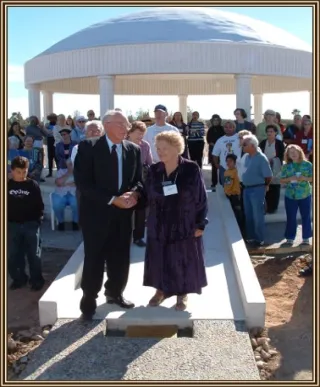The Bahá'í Faith: Spiritual Solutions for a Divided World

The Bahá’í Faith: A Balance of Individual Liberty and Global Unity
The Bahá’í Faith is a global religion that champions individual responsibility and the personal search for truth. It provides a unique model of local yet internationally federated governance, focused on justice while encouraging broad individual initiative. Crucially, the Faith upholds the critical role of freedom of conscience and speech, recognizing these as fundamental human rights and essential elements for societal progress.
These principles of free speech and freedom of conscience are foundational to the Bahá’í approach, which maintains unity in fundamentals while embracing a diversity of perspectives and opinions.
Unity in Diversity: A Global Perspective with Local Action
Central to Bahá’í teachings is the concept of unity in diversity. This belief in a universal human identity, the “oneness of humanity,” views all peoples as the children of one God (however differently that Reality might be understood). This universal perspective is balanced with a strong emphasis on local community building and decentralized administration. Bahá’ís envision a future world where political power is almost entirely decentralized to local governing councils whose mandate is the protection of fundamental rights, i.e. “justice”.
Transcending Limited Identities
The Bahá’í teachings warn against the dangers of prejudice and narrow identities such as those based on race, class, political party or extreme nationalism. Instead, it promotes a sense of world citizenship while still allowing for a sane and legitimate patriotism. Bahá’ís believe that unity is only possible with recognition of our common identity derived from our shared spiritual reality as the children of one God. Clinging to secondary identities leads only to division and conflict.
The Independent Investigation of Truth
A key Bahá’í principle is the independent investigation of truth. Each individual is encouraged to examine beliefs and ideas for themselves, rather than blindly following tradition or authority. One of Bahá’u’lláh’s most challenging teachings concerns the possibility — but great difficulty — of approaching truth.
Our Western culture is presently struggling with the failings of the Enlightenment myth of default rationality — that education or right information somehow automatically confers the ability to discern truth from falsehood. This myth is belied by experience. Modern man is flooded with more information than ever before — and yet his bias and prejudice against others only grows more entrenched.
The promise of objective truth is held out to us — but only if we stop blindly following the beliefs of others and seek truth independently. And this is fundamentally a spiritual problem because the human heart is prejudiced by particular love and hate which warps and distorts our ability to discern truth.
Addressing the Spiritual Crisis of Materialism
One’s worldview is their religion — their “heaven and earth”. And the greatest crisis of the modern age is the dethronement of God — the often unconscious adoption of materialistic worldviews which put undue emphasis on social wellbeing over spiritual reality. This crisis of materialism is not so much about greed as it is about irreligion — a disease which eats into the vitals of the soul.
Material worldviews inevitably give birth to false gods — the exaltation of minor identities — which divide us into warring categories and factions along lines such as race, class, gender and nation. Religion is the vital force which alone can serve as the antidote to this poison of materialism.
The three great false gods of the 20th century were identities based on race, class, and nation. And while those ghosts remain with us, the present century has seen no shortage of new identities to further divide us. Unity seems like an impossible, even foolish dream in a divided world where even the attempts to rectify past injustices only have disunity as a tool for action.
Only a common faith can unite us — a faith in the spiritual reality of the human soul and the divine purpose of our existence. Only the force of renewed religion can act as the antidote to the poison of materialistic worldviews. And that is the work of Bahá’ís everywhere. Evil cannot be fought with evil. The only solution to a spiritual crisis is a spiritual solution.
A modern age, with modern false gods, has its false priests and false prophets — the politicians and official spokepersons who direct the thoughts and emotions of their willing subjects.
A Unique Approach to Governance
The Bahá’í administrative order is unique in its approach to governance. It eschews clergy and partisan politics, instead utilizing a system of elected local councils with clearly defined scope and purpose. This system aims to harness the power of collective decision-making while avoiding the natural pitfalls of centralization and abuse of power.
It calls for a globalization of law to prevent international war — together with a decentralization of power to prevent domestic tyranny. It seeks a balance of individual liberty and global unity — a balance of personal responsibility and local governance. Rather than a centralized world tyranny, it envisions a world of small states with a federated system of order similar to the United States’ older model of governance at the beginning of the 20th century.
Conclusion
The Bahá’í Faith offers a unique perspective on addressing the challenges of the modern world. By emphasizing individual responsibility, freedom of speech, local governance, and a universal spiritual identity, it provides a framework for achieving global unity while preserving individual liberty. The Faith’s strong stance on the freedom of conscience and expression is particularly relevant in today’s world, where these fundamental rights are often challenged. As humanity grapples with the complexities of an increasingly interconnected world, the Bahá’í teachings offer insights that resonate with those seeking a balance between personal freedom, open discourse, and collective well-being.